Lcd companion boards support (VKLCD50RTA & VKLCD70RT)
What is this ?
This is a demo program using Renesas RGA library & USB Camera to demonstrate VK-RZ/A1H's companion boards workability.
Supported companion Boards:
VKLCD50RTA
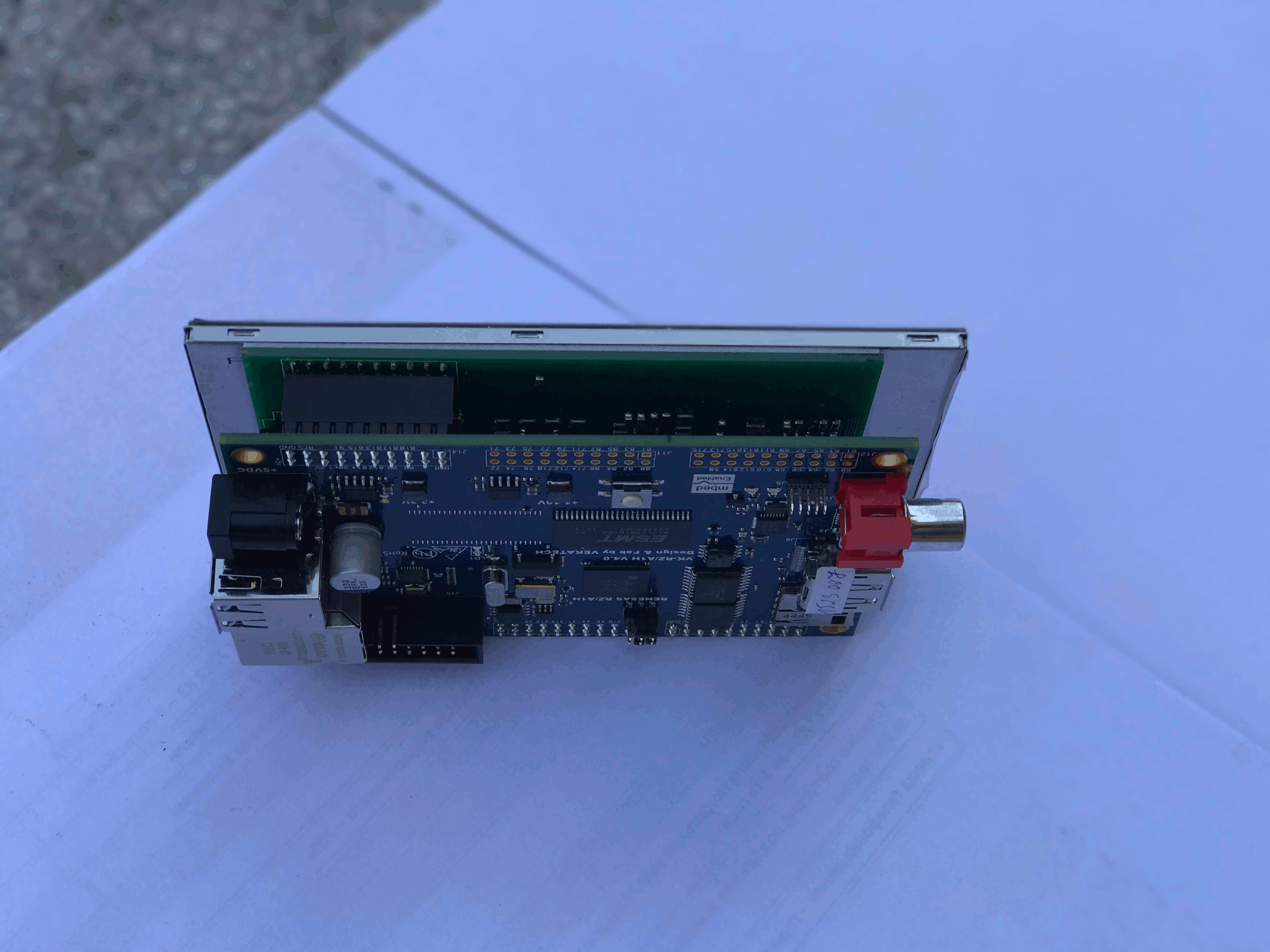
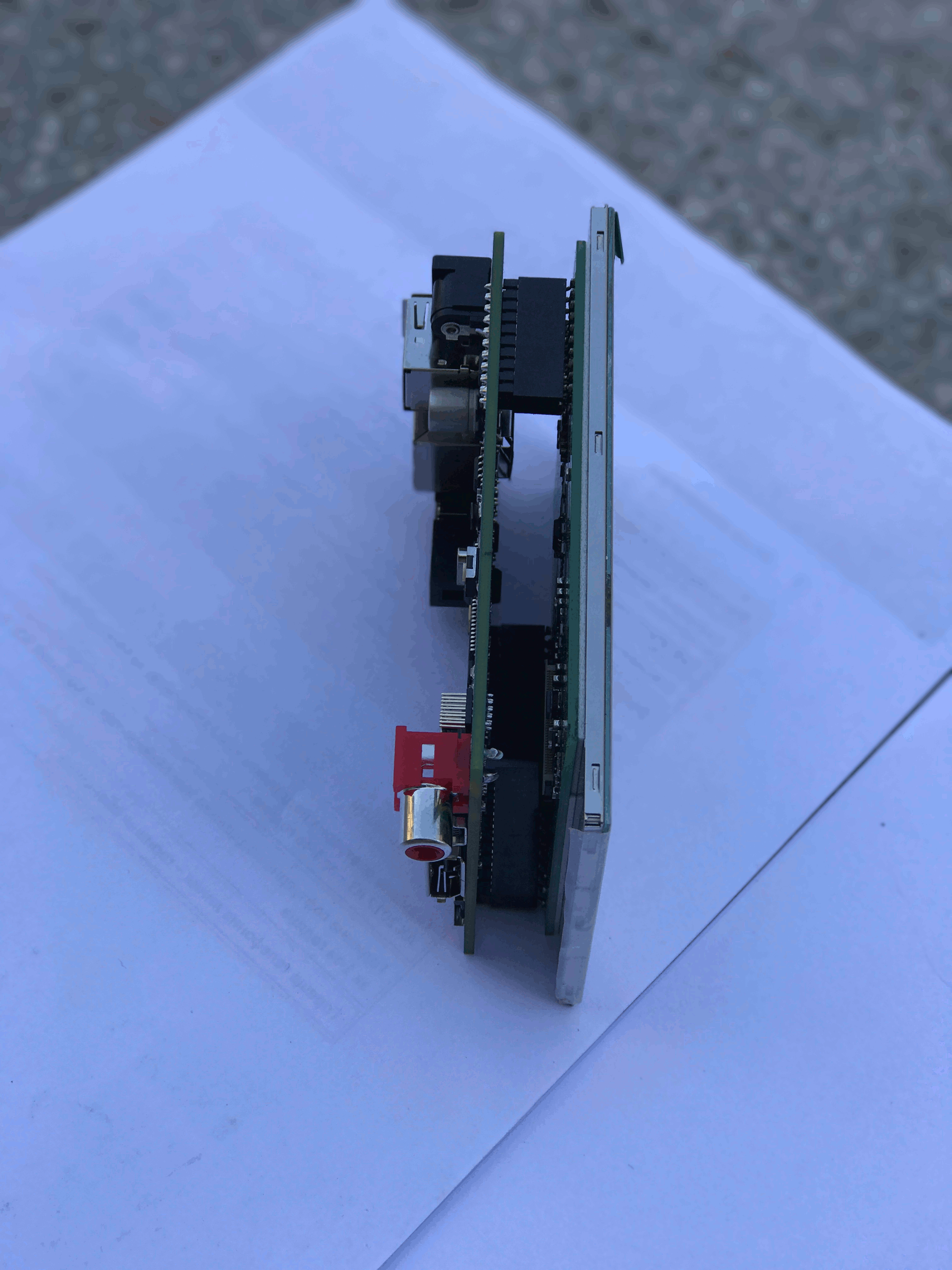
VKLCD70RT
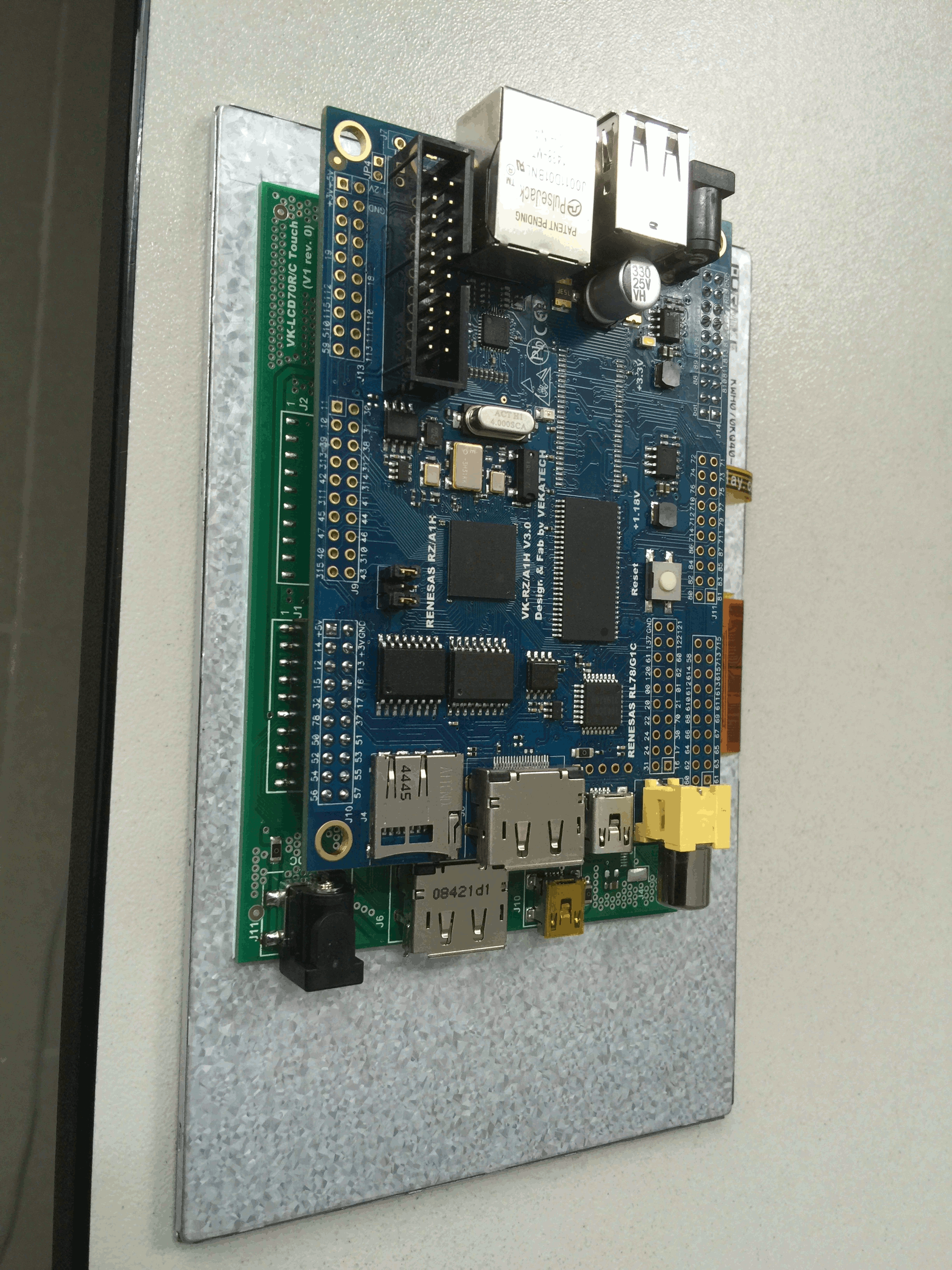
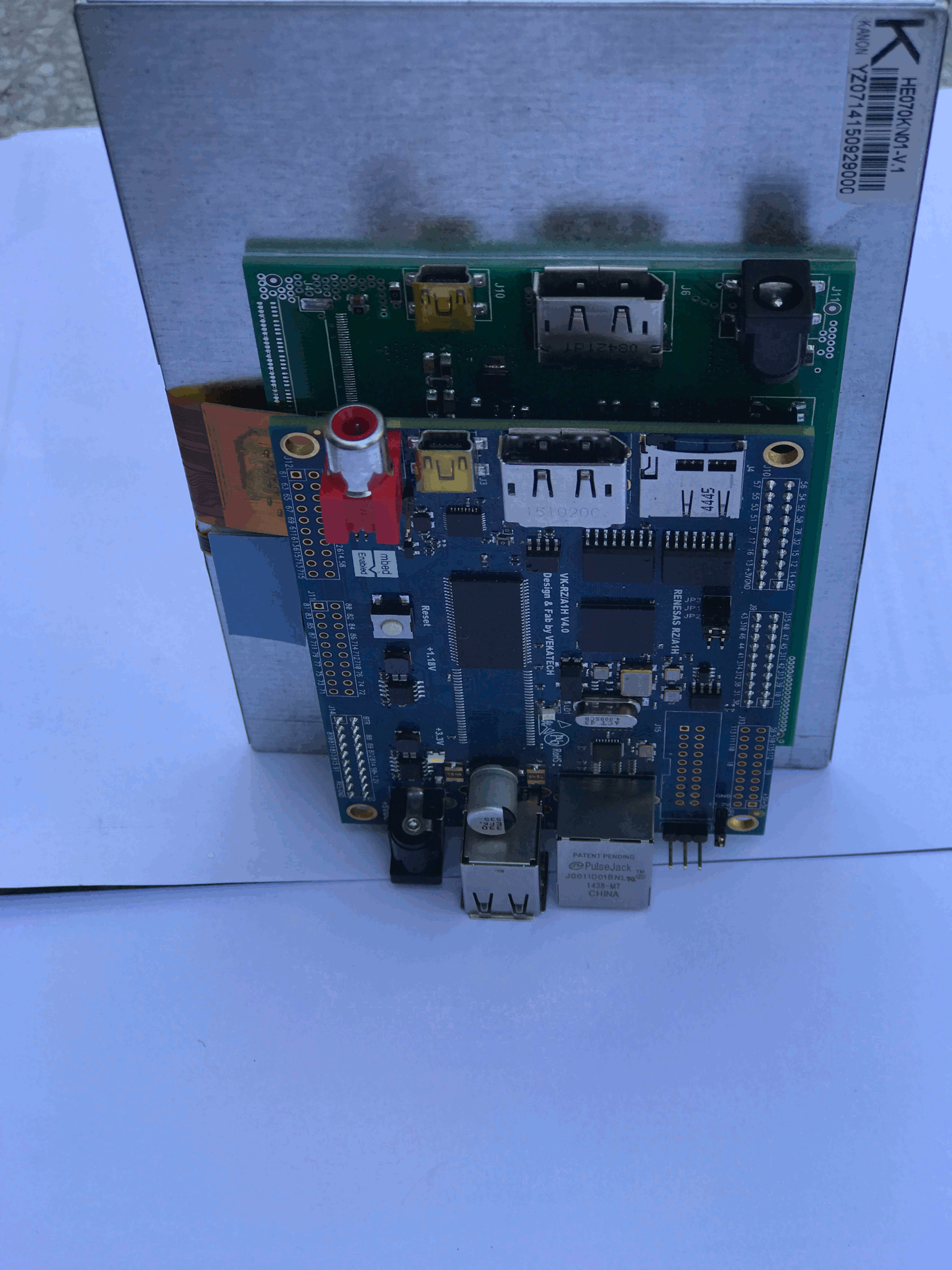
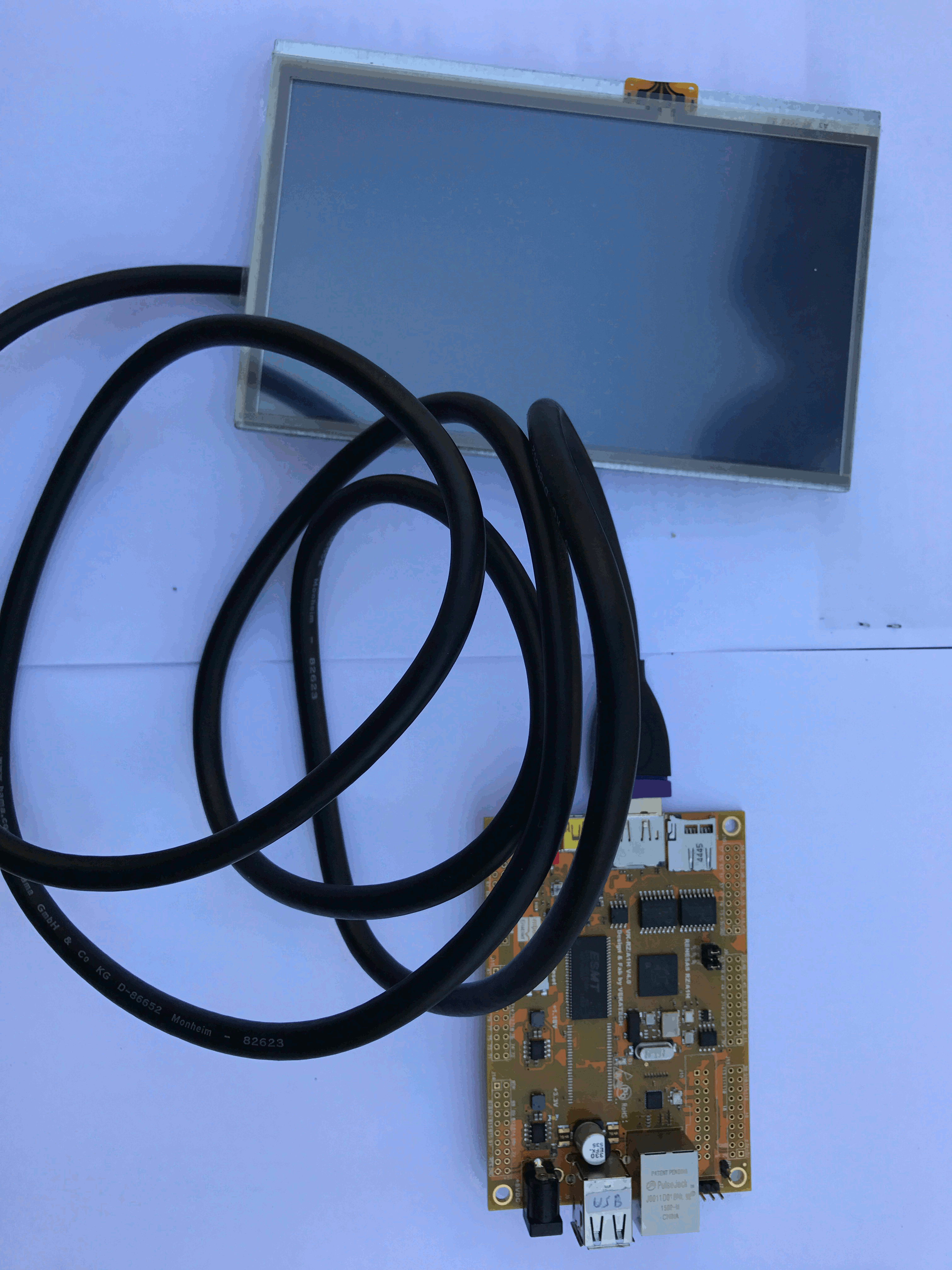
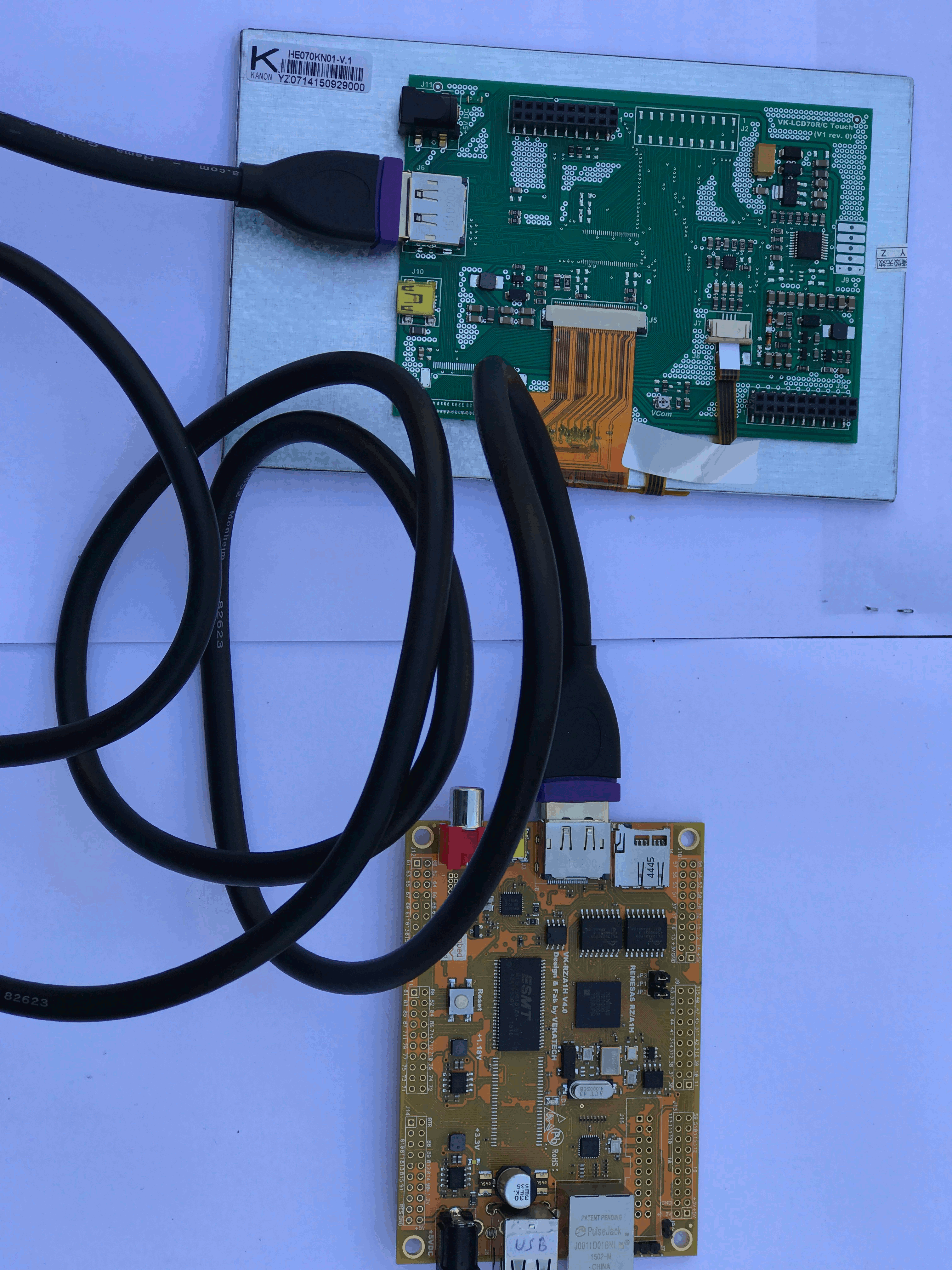
How to Configure ?
You can choose which display is installed by altering the lcd_panel.h file
Leave the active one & comment out the others:
#define LCD_VDC5_CH0_PANEL LCD_CH0_PANEL_VKLCD50RTA //#define LCD_VDC5_CH0_PANEL LCD_CH0_PANEL_VKLCD70RT
You can alter the whole demo with your pictures if you like:
How to compile ?
- The Demo can be compiled in 3 modes:
- I. Execution from the internal 10-MB on-chip SRAM.
- II. Execution from the on-board serial FALSH in dual (32-MB) mode.
- After import in the online compiler just leave only the VKRZA1H_DOUBLE.sct & delete all others linker files in the TOOLCHAIN_ARM_STD folder.
- Drag & drop the result binary in MBED disk, (previously inited in double flash mode)
- III. Execution from the on-board serial FALSH in single (16-MB) mode.
- After import in the online compiler just leave only the VKRZA1H_SINGLE.sct & delete all others linker files in the TOOLCHAIN_ARM_STD folder.
- Drag & drop the result binary in MBED disk, (previously inited in single flash mode )
Quick presentation:
Other demos ?
More demos you can find on our FTP
Diff: hal/api/Ticker.h
- Revision:
- 0:6435b67ad23c
diff -r 000000000000 -r 6435b67ad23c hal/api/Ticker.h
--- /dev/null Thu Jan 01 00:00:00 1970 +0000
+++ b/hal/api/Ticker.h Thu Feb 16 10:23:48 2017 +0000
@@ -0,0 +1,130 @@
+/* mbed Microcontroller Library
+ * Copyright (c) 2006-2013 ARM Limited
+ *
+ * Licensed under the Apache License, Version 2.0 (the "License");
+ * you may not use this file except in compliance with the License.
+ * You may obtain a copy of the License at
+ *
+ * http://www.apache.org/licenses/LICENSE-2.0
+ *
+ * Unless required by applicable law or agreed to in writing, software
+ * distributed under the License is distributed on an "AS IS" BASIS,
+ * WITHOUT WARRANTIES OR CONDITIONS OF ANY KIND, either express or implied.
+ * See the License for the specific language governing permissions and
+ * limitations under the License.
+ */
+#ifndef MBED_TICKER_H
+#define MBED_TICKER_H
+
+#include "TimerEvent.h"
+#include "Callback.h"
+
+namespace mbed {
+
+/** A Ticker is used to call a function at a recurring interval
+ *
+ * You can use as many seperate Ticker objects as you require.
+ *
+ * @Note Synchronization level: Interrupt safe
+ *
+ * Example:
+ * @code
+ * // Toggle the blinking led after 5 seconds
+ *
+ * #include "mbed.h"
+ *
+ * Ticker timer;
+ * DigitalOut led1(LED1);
+ * DigitalOut led2(LED2);
+ *
+ * int flip = 0;
+ *
+ * void attime() {
+ * flip = !flip;
+ * }
+ *
+ * int main() {
+ * timer.attach(&attime, 5);
+ * while(1) {
+ * if(flip == 0) {
+ * led1 = !led1;
+ * } else {
+ * led2 = !led2;
+ * }
+ * wait(0.2);
+ * }
+ * }
+ * @endcode
+ */
+class Ticker : public TimerEvent {
+
+public:
+ Ticker() : TimerEvent() {
+ }
+
+ Ticker(const ticker_data_t *data) : TimerEvent(data) {
+ data->interface->init();
+ }
+
+ /** Attach a function to be called by the Ticker, specifiying the interval in seconds
+ *
+ * @param func pointer to the function to be called
+ * @param t the time between calls in seconds
+ */
+ void attach(Callback<void()> func, float t) {
+ attach_us(func, t * 1000000.0f);
+ }
+
+ /** Attach a member function to be called by the Ticker, specifiying the interval in seconds
+ *
+ * @param obj pointer to the object to call the member function on
+ * @param method pointer to the member function to be called
+ * @param t the time between calls in seconds
+ */
+ template<typename T, typename M>
+ void attach(T *obj, M method, float t) {
+ attach(Callback<void()>(obj, method), t);
+ }
+
+ /** Attach a function to be called by the Ticker, specifiying the interval in micro-seconds
+ *
+ * @param fptr pointer to the function to be called
+ * @param t the time between calls in micro-seconds
+ */
+ void attach_us(Callback<void()> func, timestamp_t t) {
+ _function.attach(func);
+ setup(t);
+ }
+
+ /** Attach a member function to be called by the Ticker, specifiying the interval in micro-seconds
+ *
+ * @param tptr pointer to the object to call the member function on
+ * @param mptr pointer to the member function to be called
+ * @param t the time between calls in micro-seconds
+ */
+ template<typename T, typename M>
+ void attach_us(T *obj, M method, timestamp_t t) {
+ attach_us(Callback<void()>(obj, method), t);
+ }
+
+ virtual ~Ticker() {
+ detach();
+ }
+
+ /** Detach the function
+ */
+ void detach();
+
+protected:
+ void setup(timestamp_t t);
+ virtual void handler();
+
+protected:
+ timestamp_t _delay; /**< Time delay (in microseconds) for re-setting the multi-shot callback. */
+ Callback<void()> _function; /**< Callback. */
+};
+
+} // namespace mbed
+
+#endif
+